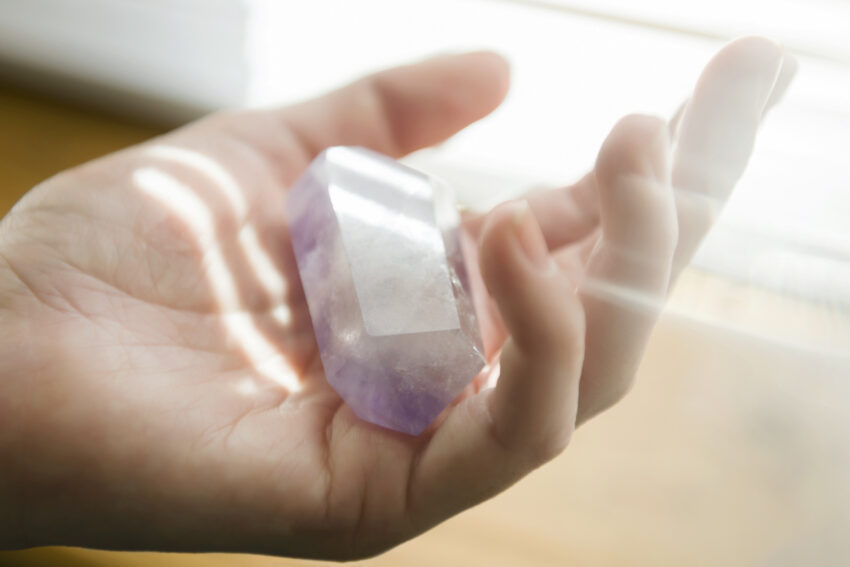Demand for crystals has never been higher. But many can be traced back to dangerous origins in some of the world’s poorest countries. With little evidence to prove the industry will change any time soon, some wellness trends appear to be causing more harm than good.
Adele performs with them, Miranda Kerr sleeps with them, Victoria Beckham won’t leave her house without them. It appears that crystals have officially entered the mainstream. When Gwyneth Paltrow introduced her infamous Yoni Eggs – rose quartz and jade eggs designed to be inserted into the vagina and activated by “a Kegel-like physical practise” – the scientific community went nuts. She initially claimed that the eggs could be used to boost feminine energy by balancing hormones and regulating menstrual cycles, eventually leading to a (USD) $145,000 false advertisement lawsuit. Her website, Goop, now suggests using the eggs to feel better connected with your body.
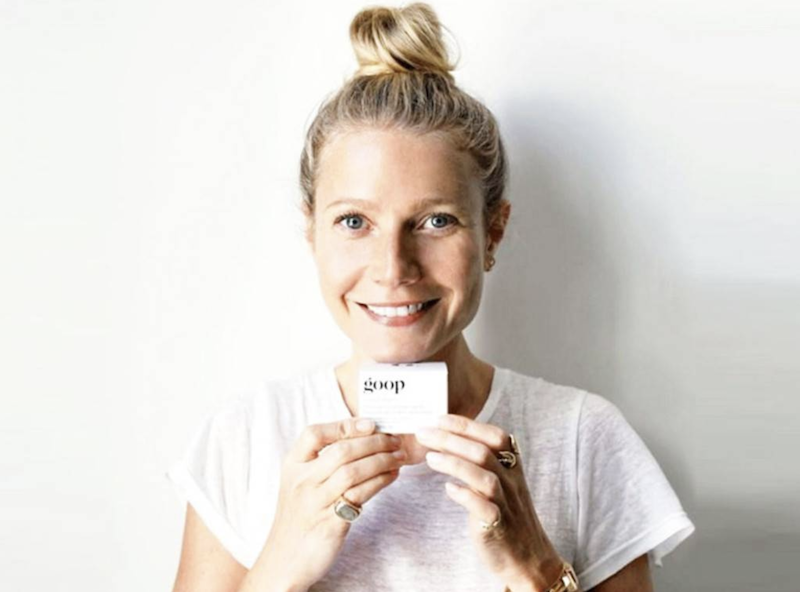
International NGO Global Witness found that the Taliban earns up to $20m a year from Afghanistan’s lapis lazuli mines.
But believers say that crystals do have the power to make real change. When used correctly, crystals are said to conduct positive energy which redress imbalances in the body, mind, and spirit. Non-believers, on the other hand, argue that any changes felt are simply down to the placebo effect – an immensely powerful tool in itself. At worst, they say, crystals will do nothing at all. But crystals aren’t exactly harmless. Like diamonds, the crystal mining industry is rife with conflict and exploitation.
Kachin State in northern Myanmar produces 70% of the world’s jade. It is a $31 billion industry there – nearly half of the nation’s GDP – and is now controlled by a corrupt military junta known as Tatmadaw. In fact, the industry fuelled the Tatmadaw’s rise to power in February 2021, when the group deposed the National League for Democracy (NLD) in a violent coup d’état.
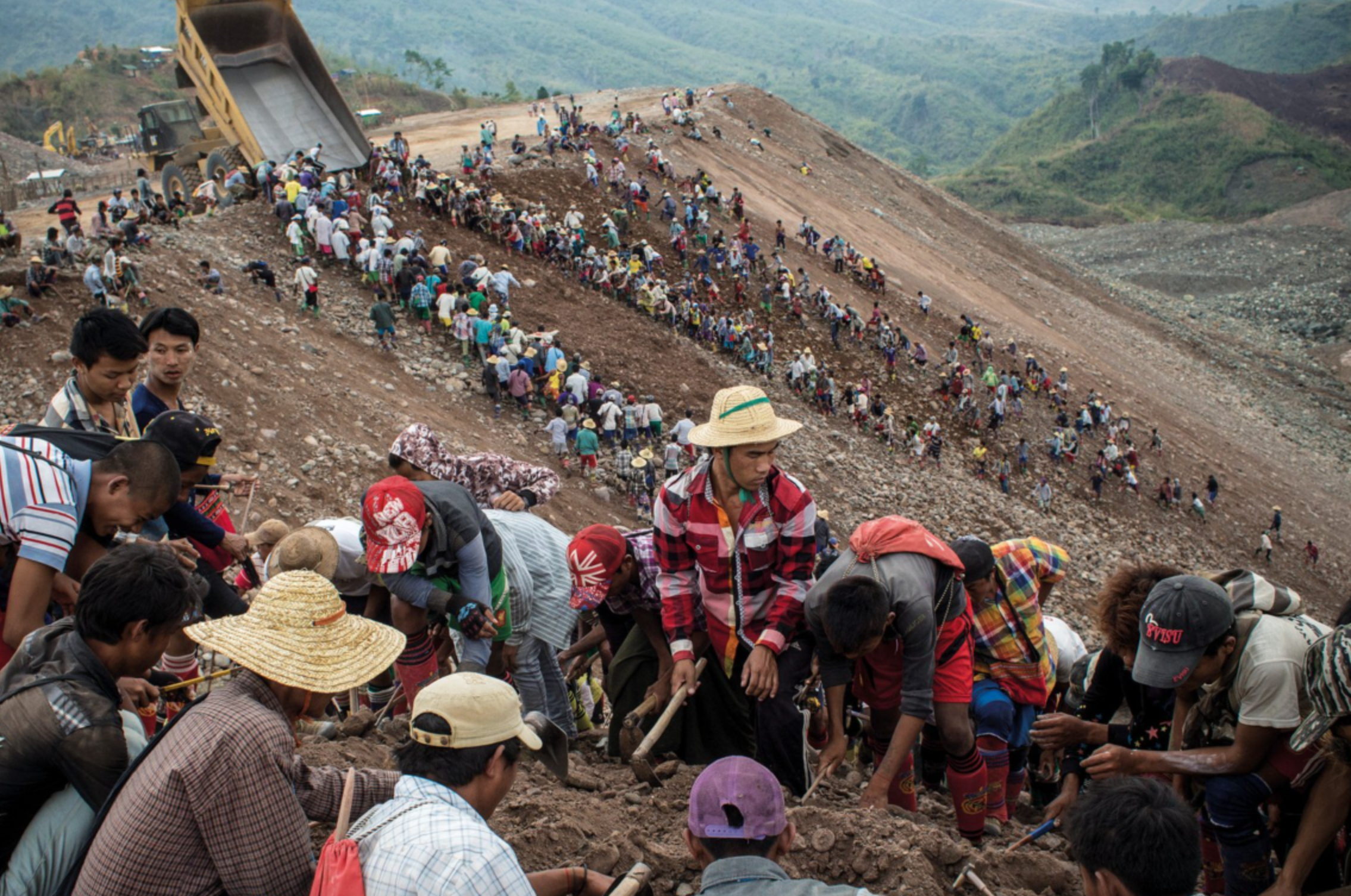
The military coup has made reform in the industry near impossible. As one of the main beneficiaries of jade wealth, the Tatmadaw have little incentive to continue implementing the legal framework put in place by the NLD. This has had devastating environmental and social consequences.
Keel Dietz, the Myanmar policy advisor for Global Witness, says that “the military, in their desperate efforts to maintain control, will look to the country’s natural resource wealth to sustain their rule, to buy weapons, and enrich themselves.”
He goes on to say that “The primary concern is really the destruction of the local environment and displacement of local people. Mining happens right in the middle of villages, and they move the entire village out. Sometimes so they can blast huge areas with dynamite so they can harvest the jade.”
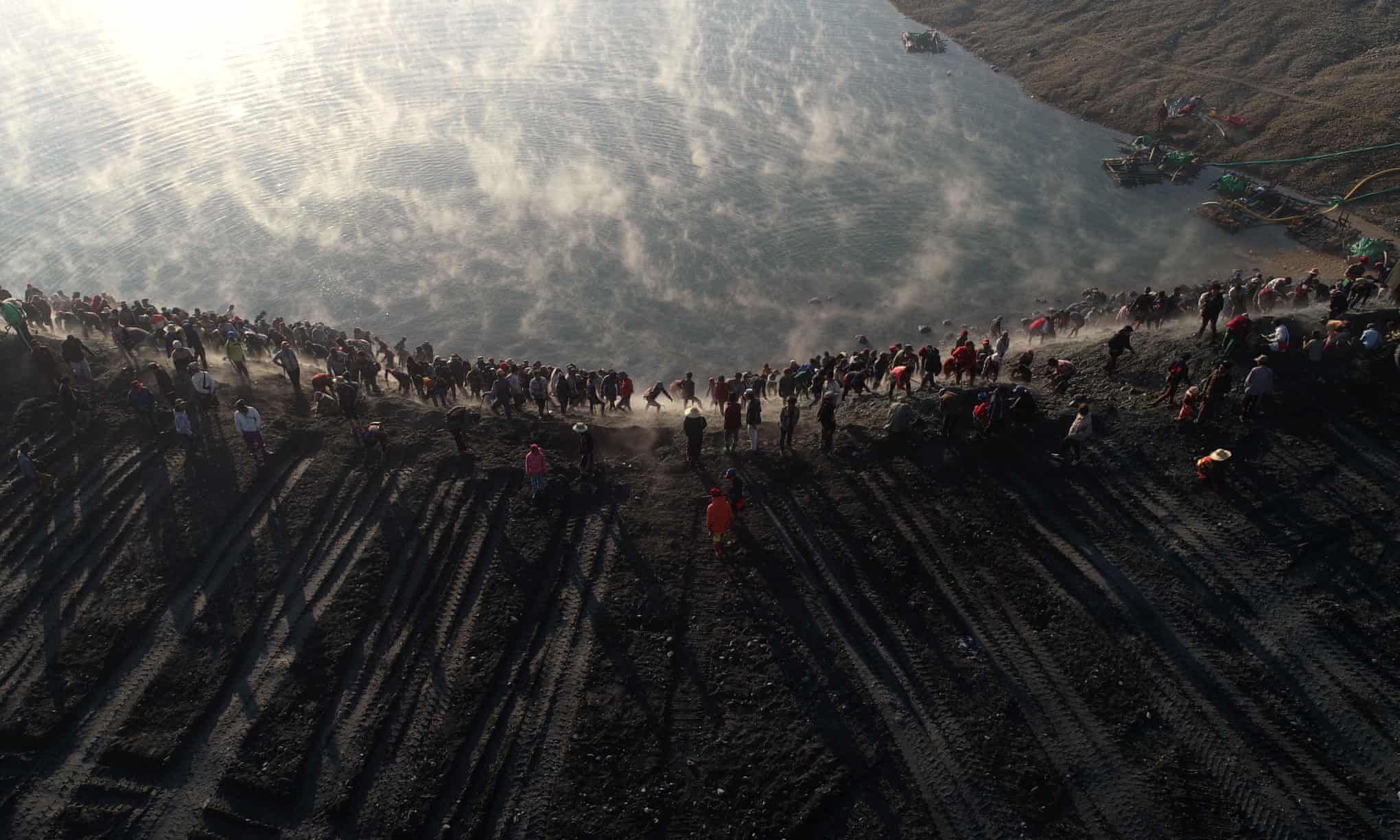
The mines are made especially narrow and deep to maximise space, making them prone to landslides which occur almost daily. In July 2020, a major landslide in the Hpakant region of Kachin State killed at least 200 miners in the nation’s deadliest recorded mining accident. The actual death toll will never be known, as most of the bodies will be left under heaps of rubble – only to be discovered years later, in search of yet more jade.
“At first it was so scary for me,” says one worker. “But it’s becoming natural … We started [to accept] that we could die in any situation.”
Most miners are unregistered labourers living in make-shift shelters, who come from all over Myanmar in the hope of finding a fortune. Their testimonies reveal a destructive environment in the community around the mines, with endemic heroin addiction, high rates of HIV, and the abuse of young women and girls.
“There are no jobs in Hpakant for women except for working as a maid or in a massage parlour,” says a 26-year-old woman living in the community. “The parlours are fronts for brothels, and many, many women are sexually abused.”
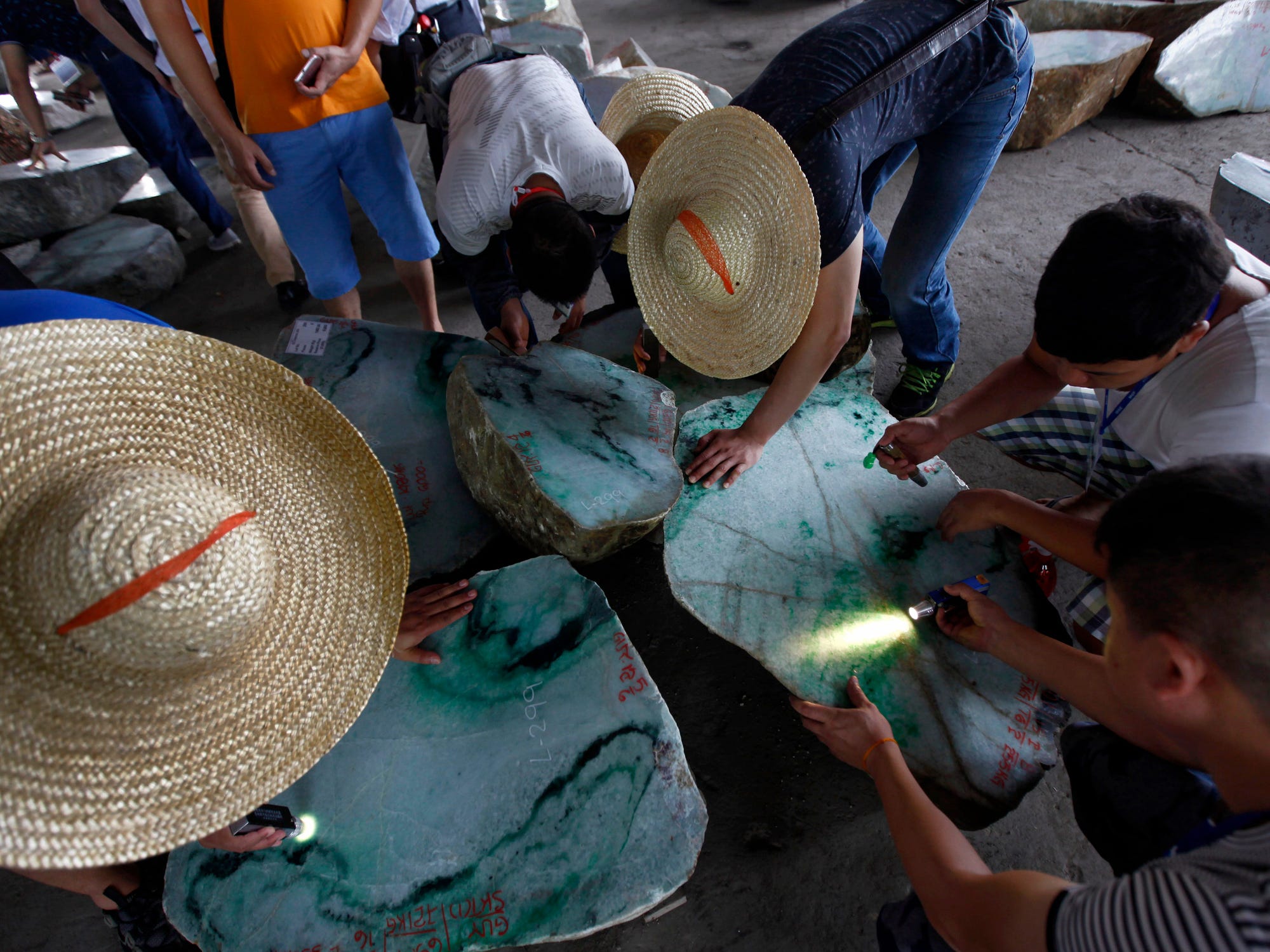
And it isn’t just Myanmar that is facing this issue. Mineral extraction is linked to severe human-rights violations and environmental harm across the developing world.
In Afghanistan, Global Witness has found that the Taliban and other armed groups earn up to $20 million a year from ancient lapis mines. They produce almost all the world’s blue lapis lazuli – supposedly one of the best stones for activating the mind. It accounts for the second largest source of income for the Taliban, and if left unchecked will drive further corruption, conflict, and extremism across the country.
In the Democratic Republic of Congo, where children are forced to work in the cobalt and copper mines, other stones such as citrine and smoky quartz are found as by-products. These precious stones, thought to bring positivity, are then bought by Western retailers and sold at a huge mark-up to the consumer.
In the Democratic Republic of the Congo, seven-year-old children work in the cobalt and copper mines, where crystals are found as a by-product.
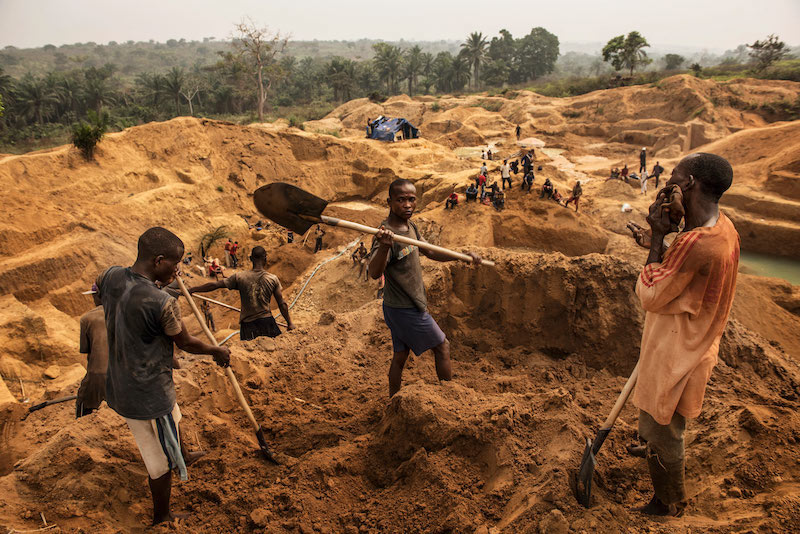
But it’s hard to find a retailer who can specify the origins of individual stones, let alone find ones that are ethically sourced. Besides, there are no laws that require them to do so.
As the crystal market continues to grow, so does the need for change. In 2000, campaigning from organisations such as Global Witness fuelled a resolution from the United Nations to regulate the diamond trade. The establishment of the Kimberley Process in 2002 virtually eliminated blood diamonds and associated conflicts. It’s possible that the government could bring in similar regulations for crystals.
For now, the future of the industry depends on consumer behaviour. When demand starts to change, so too will supply.
Here’s what you can do to help:
- Compare prices across shops and avoid the lowest-priced crystals.
- Ask sellers about the origins of their products. If they can’t give you a straight answer, look elsewhere.
- Talk to your friends and family about crystal mining issues to spread awareness.
- Write letters to government officials advocating for stricter labour and mining laws.

